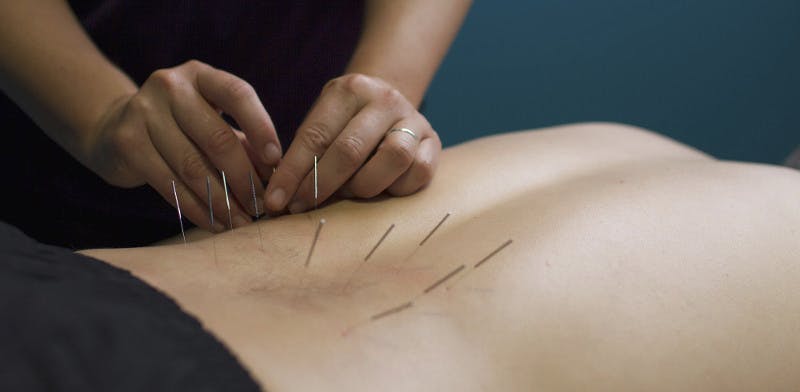Dry Needling
Dry needling is an effective technique used to treat neuromuscular dysfunction that is causing pain or loss of motion. The technique uses a small, thin, solid needle inserted through the skin into areas of the muscle known as trigger points.
The goal is to relieve pain locally or referred into another area, and/or to improve range of motion. Dry Needling is one technique that compliments a larger, comprehensive treatment plan. Patients who receive treatment often report immediate pain relief and see an improvement with movement and focus.
Therapists who use Dry Needling as a treatment approach are specifically trained in the technique and have met Illinois requirements for Dry Needling certification. Ask your therapist if treatment is an appropriate compliment to your physical therapy.
The goal is to relieve pain locally or referred into another area, and/or to improve range of motion. Dry Needling is one technique that compliments a larger, comprehensive treatment plan. Patients who receive treatment often report immediate pain relief and see an improvement with movement and focus.
Therapists who use Dry Needling as a treatment approach are specifically trained in the technique and have met Illinois requirements for Dry Needling certification. Ask your therapist if treatment is an appropriate compliment to your physical therapy.

